Richard Yasmine’s furniture celebrates the city of Beirut
Two collections of furniture designs by Lebanese designer Richard Yasmine combine diverse references and a graphic aesthetic language, plus a tribute to the city of Beirut on the anniversary of the 2020 explosion
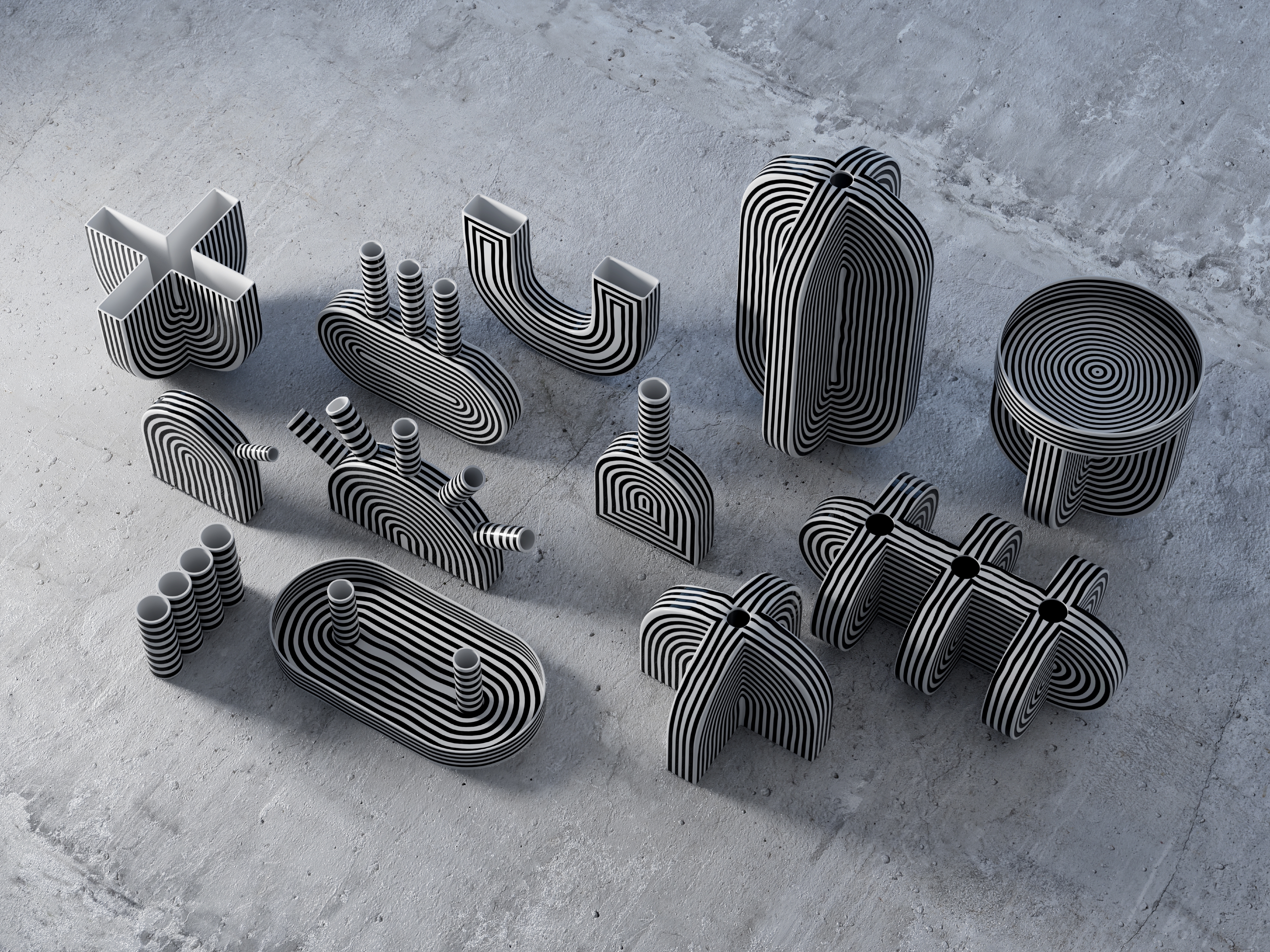
Lebanese designer Richard Yasmine’s latest furniture designs and objects distill diverse inspirations and references into a graphic language. While the Flowing Fragments collection of marble furniture includes variation on the theme of the table referencing Classical architecture, the After Ago series uses similar geometries in a different format, namely ‘emotional fantasy objects’ made of foam, lightweight concrete plaster, acrylic and clay.
Flowing Fragments
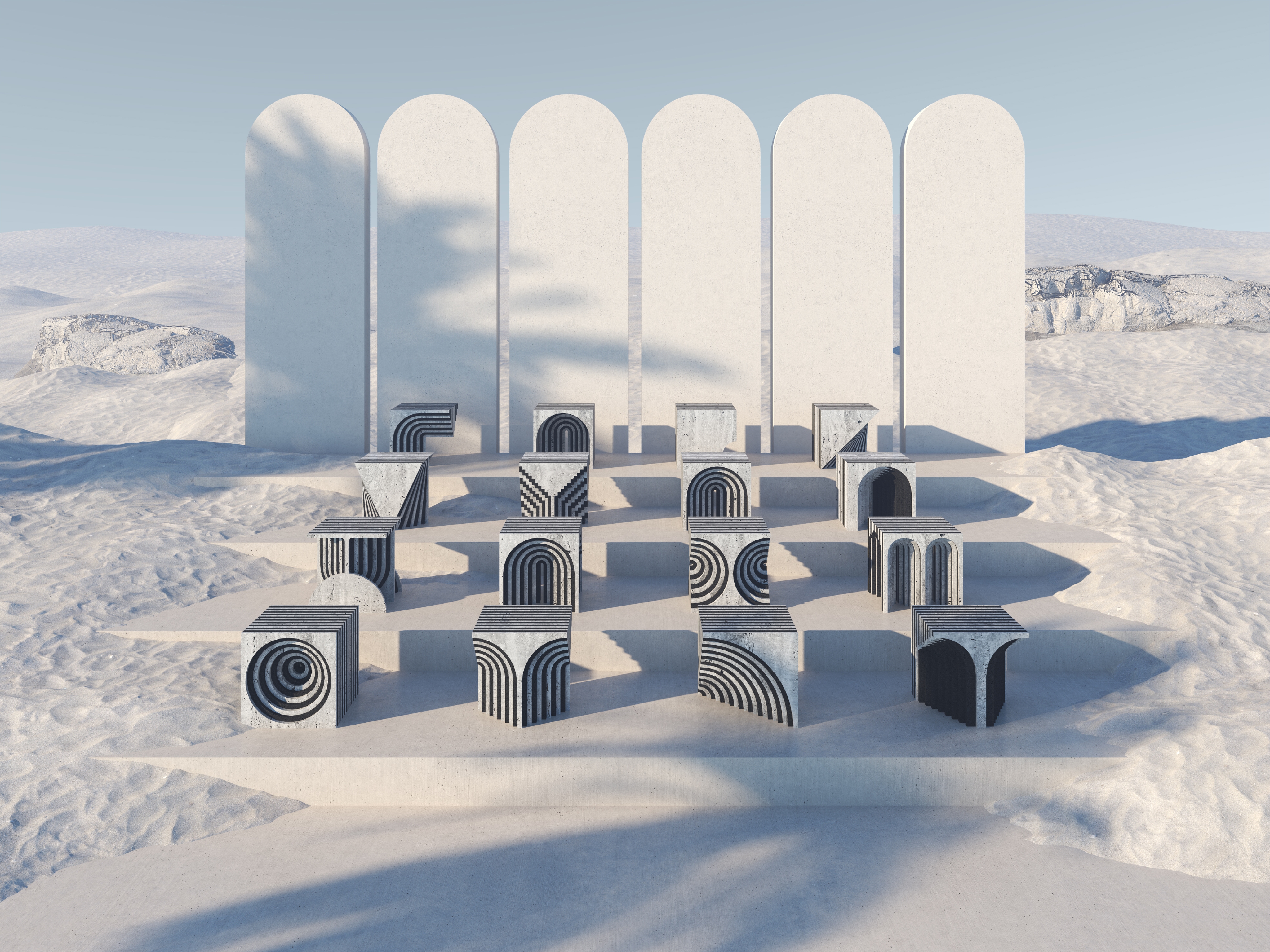
A collection of 16 limited edition tables, the Flowing Fragments pieces are compositions of different alternate slabs of sedimentary and basaltic stones inspired by Greco-Roman architecture. Using stone offcuts, the collection demonstrates how production waste and offcuts can be repurposed sustainably into striking design pieces.
Each piece features a series of visual contrasts, whether in the shadow play offered by their compositions, or in the alternating colour tones of the stone. With this collection Yasmine, wants to emphasize the importance of our global cultural heritage: ‘it’s an awareness to save remaining forgotten fragments of previous civilizations in addition to help protect abandoned sites while highlighting on the antiquities trafficking besides the destruction of authentic and deserted landmarks particularly nowadays when heritage is threatened by urban development.’
After Ago
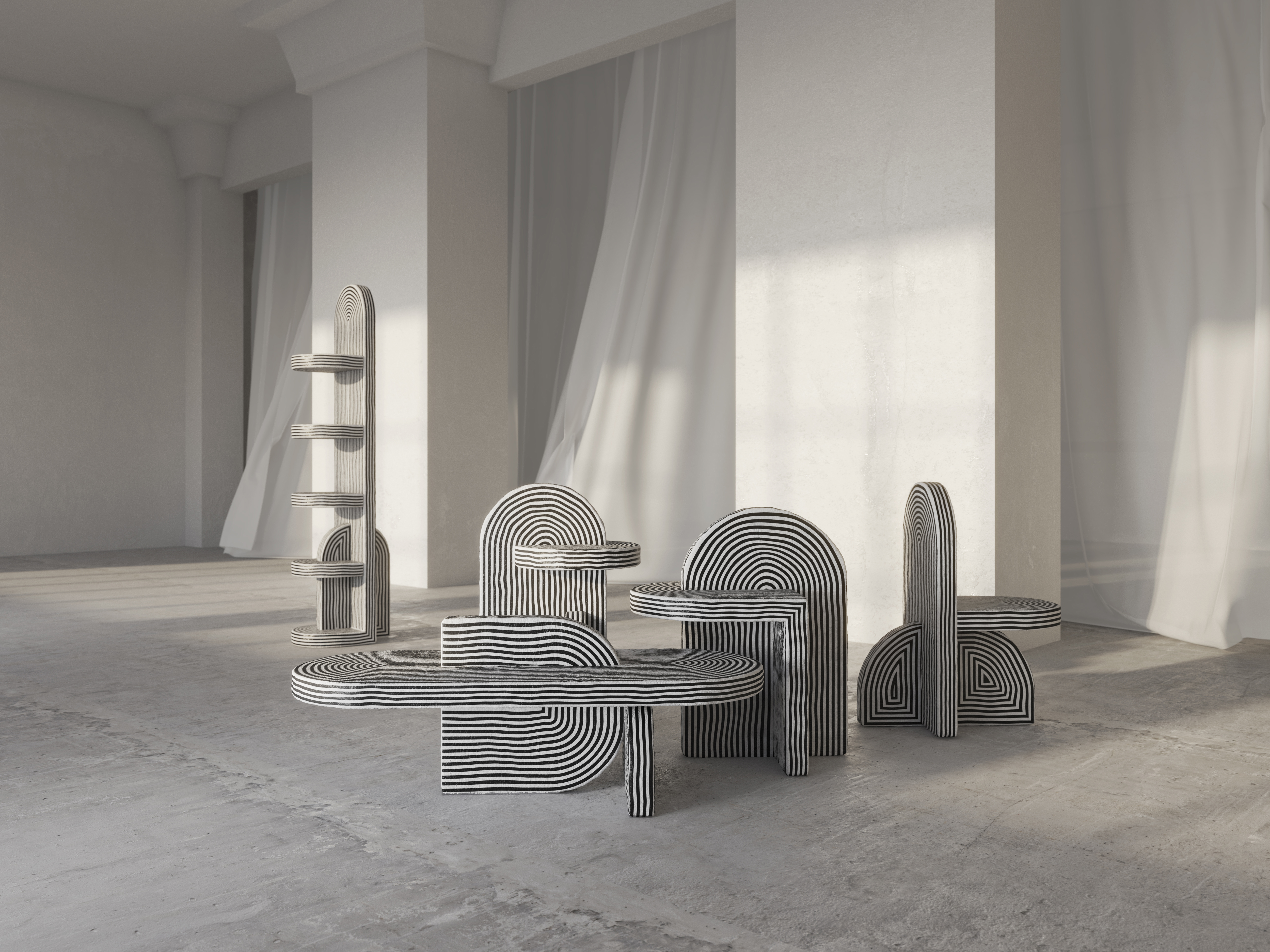
Similar in aesthetic but different in inspiration, the After Ago is a sculptural collection of objects and furniture references Postmodernism, Memphis design, and the lines of Art Deco. The collection is based on Yasmine’s recurring interest in creating multiple object compositions using simple lines and was created through sketching, rotating and flipping arches, and geometrical procedures such as inserting, intersecting, extruding, and detracting to ‘embrace the splendor of the curves.’ The simple lines become a seat, a shelving unit, a table, a tray, a vase and more.
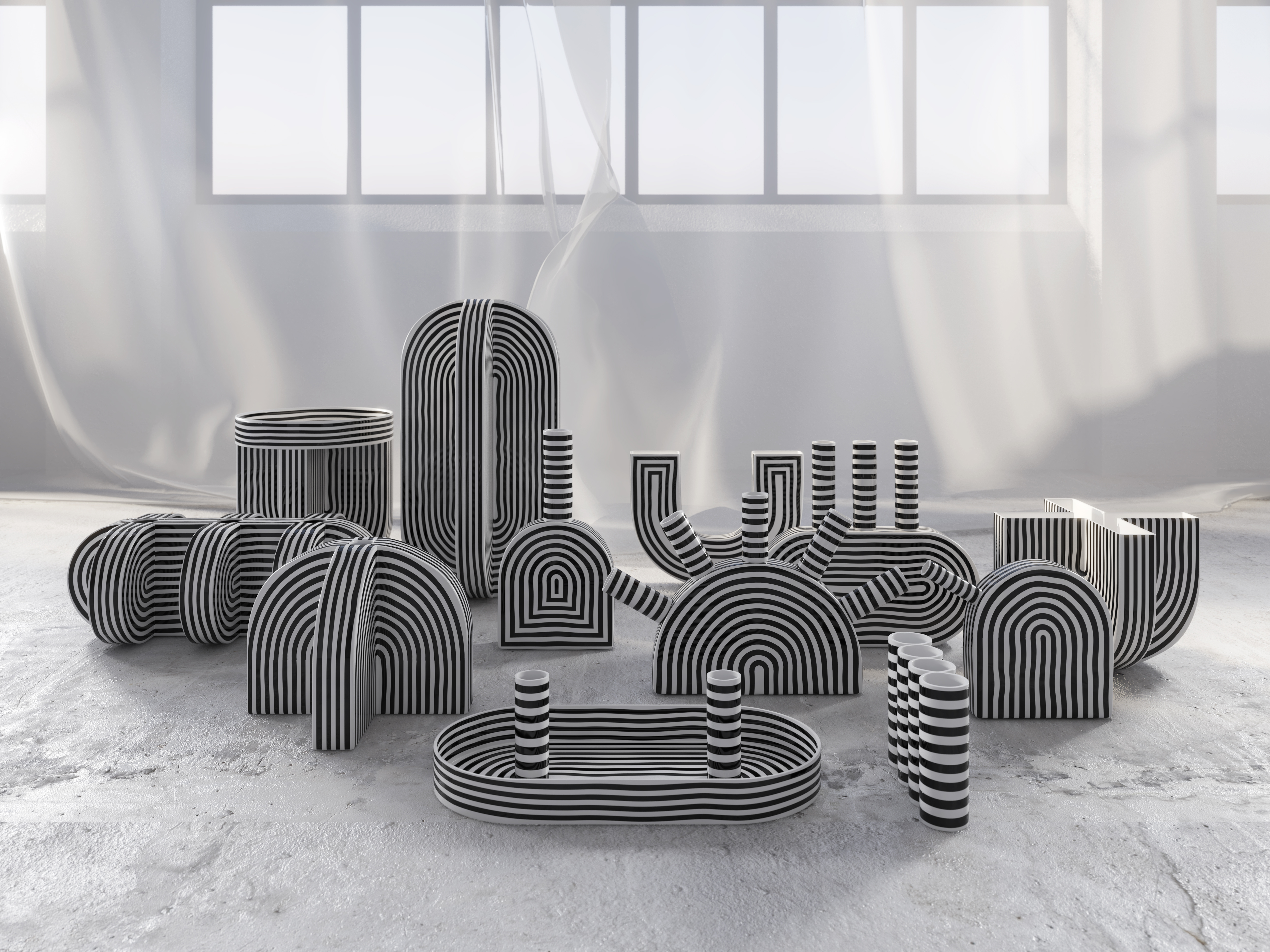
‘The objects induce an emotional alteration of the self,’ says Yasmin of the visual contrasts: sad and happy, mad and sane, anxious and calm, death and love. The series forms the designer’s personal tribute to the city of Beirut on the anniversary of the 2020 blast. ‘With its multiple lives and layers throughout centuries, Beirut always rises from the ashes longing for eternal life.’
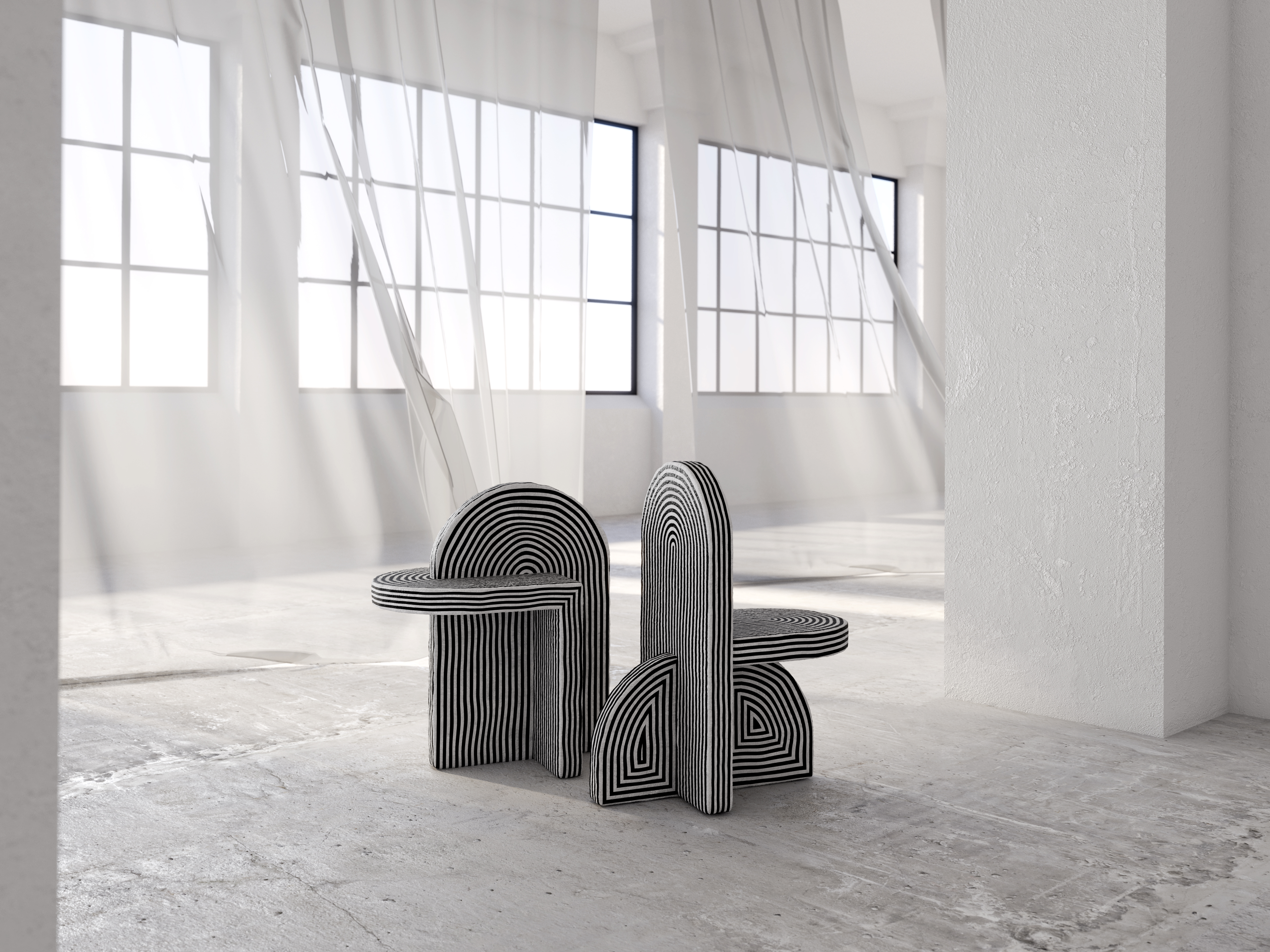
Side table and chair from the After Ago collection
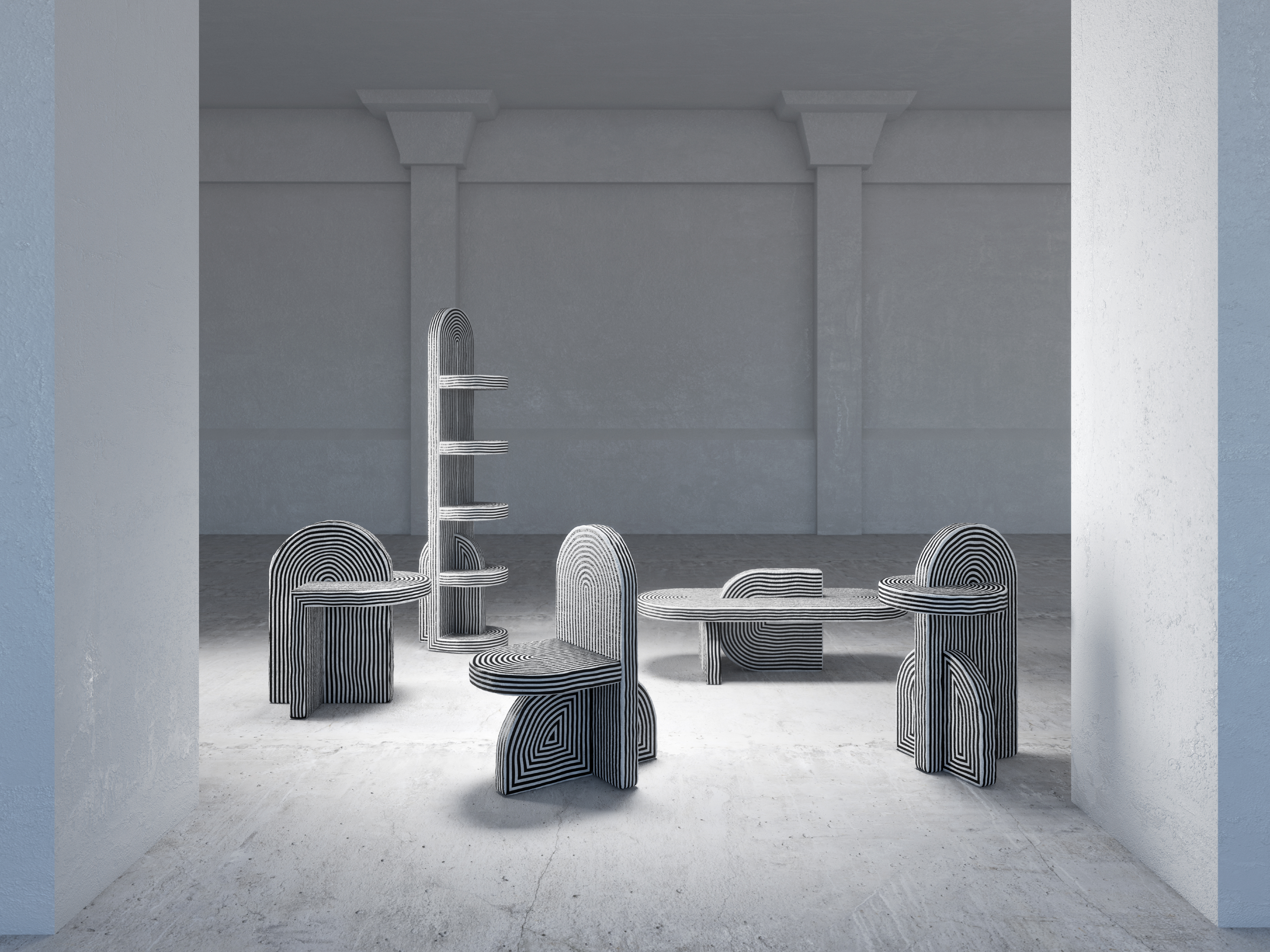
After Ago furniture
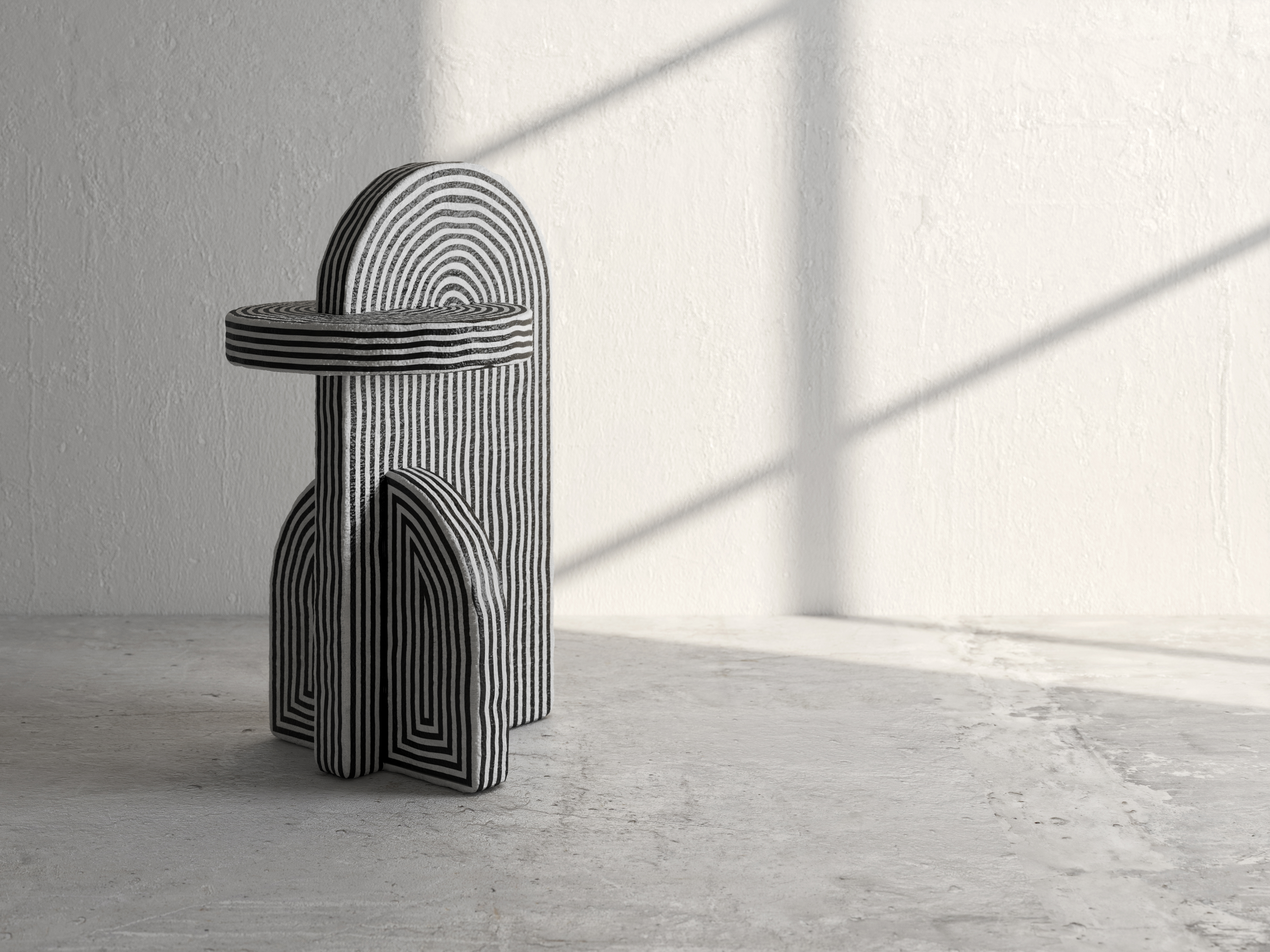
Side table from the After Ago collection

Flowing Fragments collection
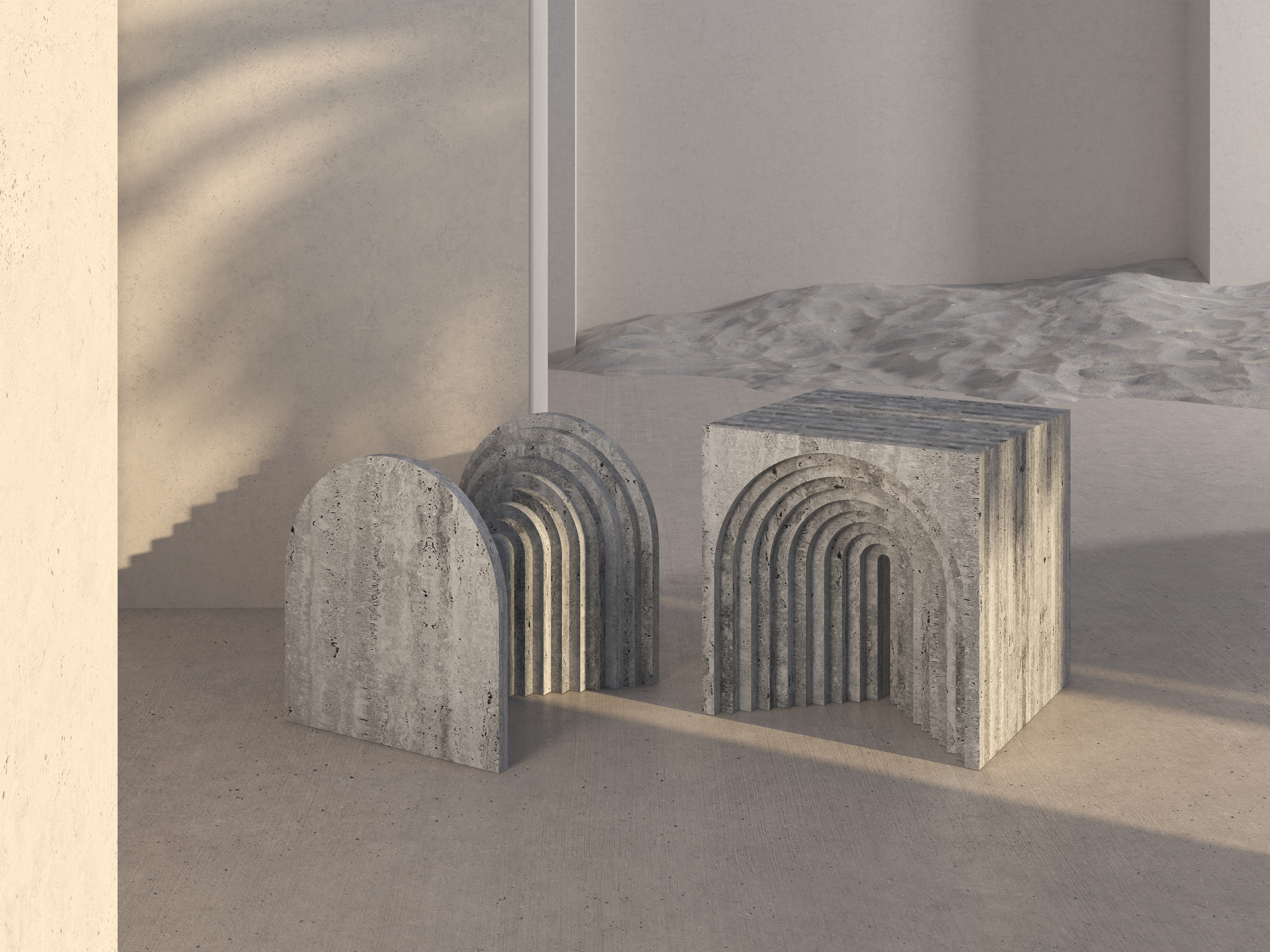
Marble pieces from the Flowing Fragments collection in grey stone
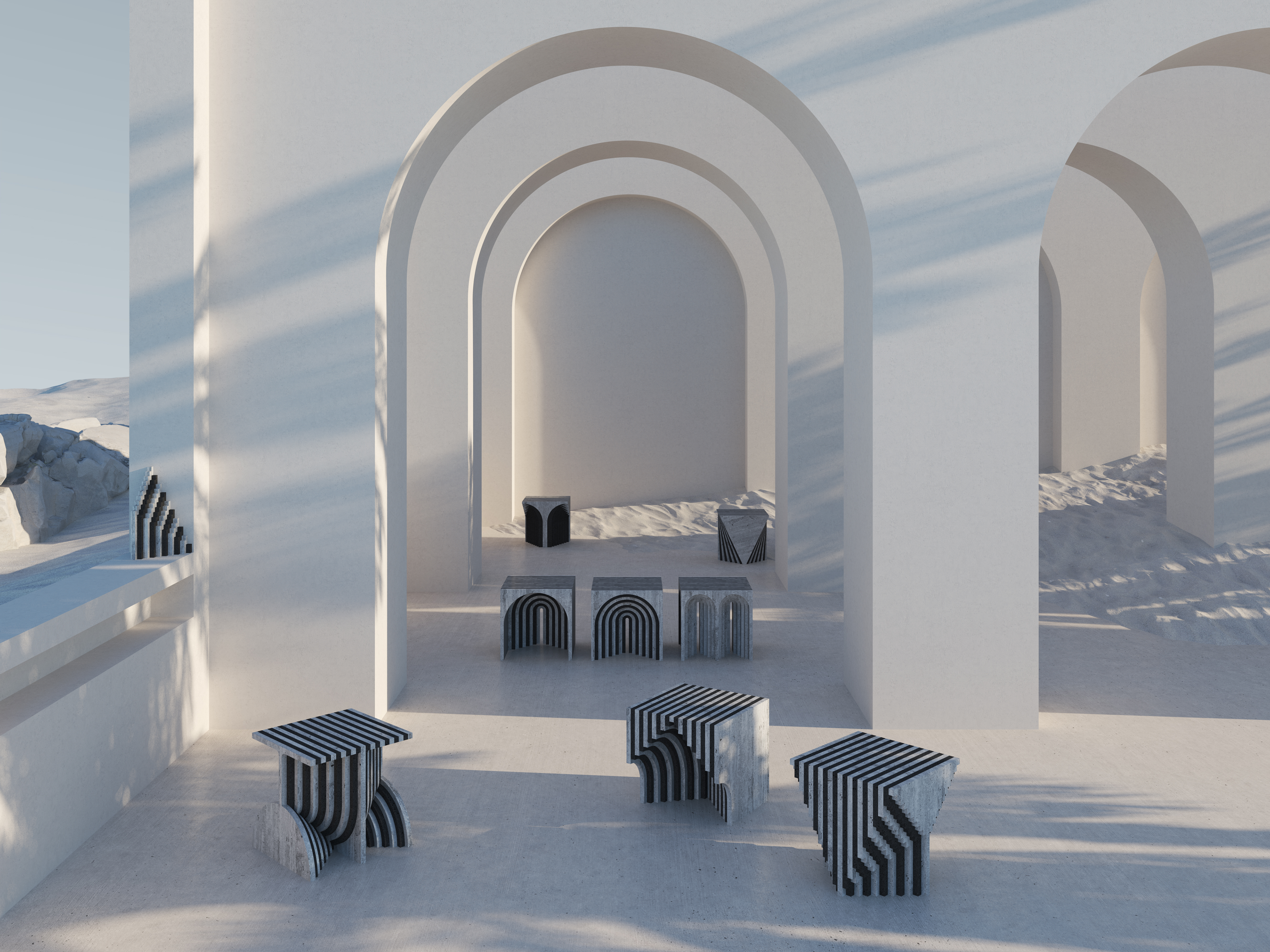
Flowing Fragments collection
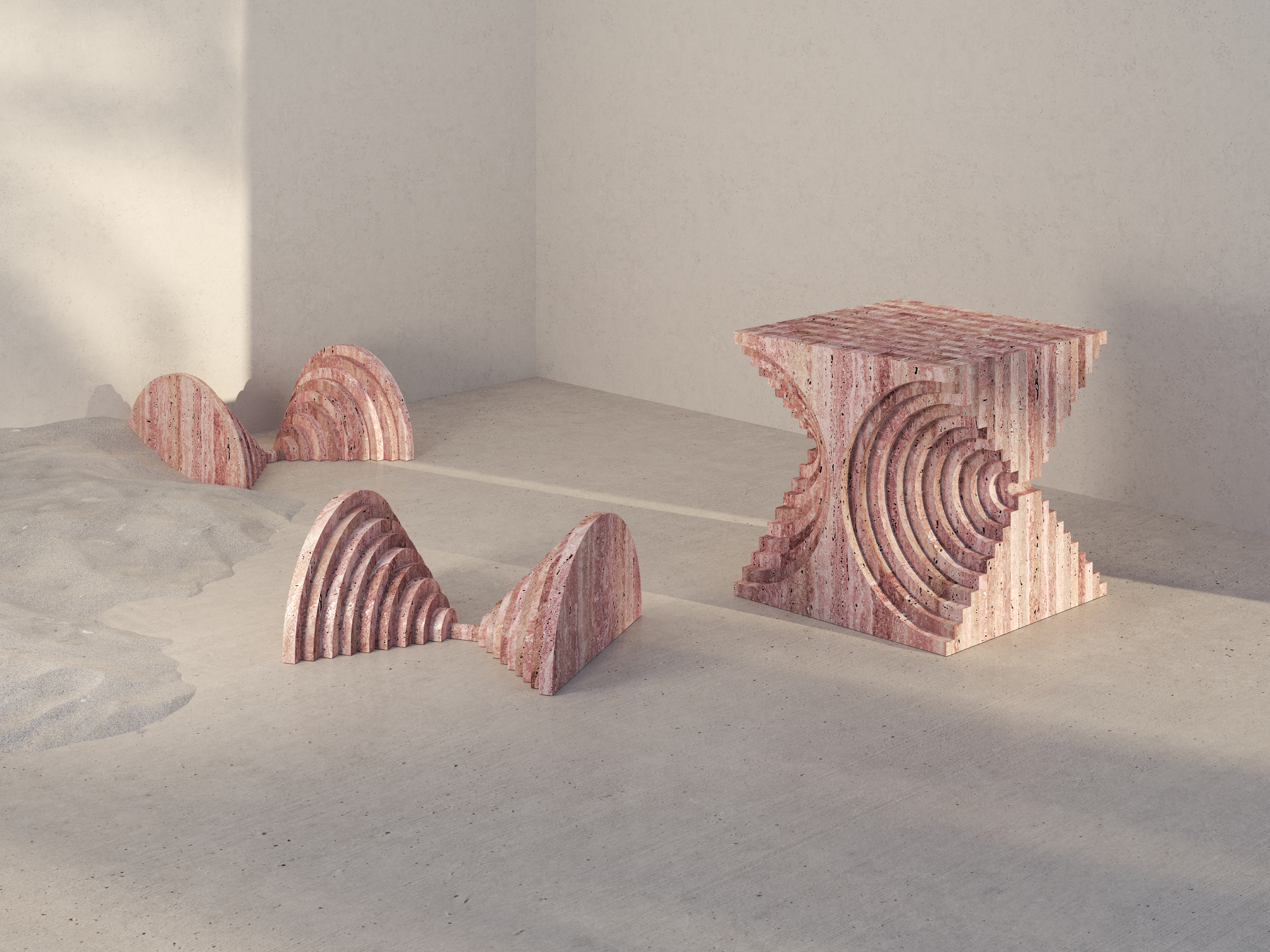
Pieces from the Flowing Fragments collection in pink layered stone
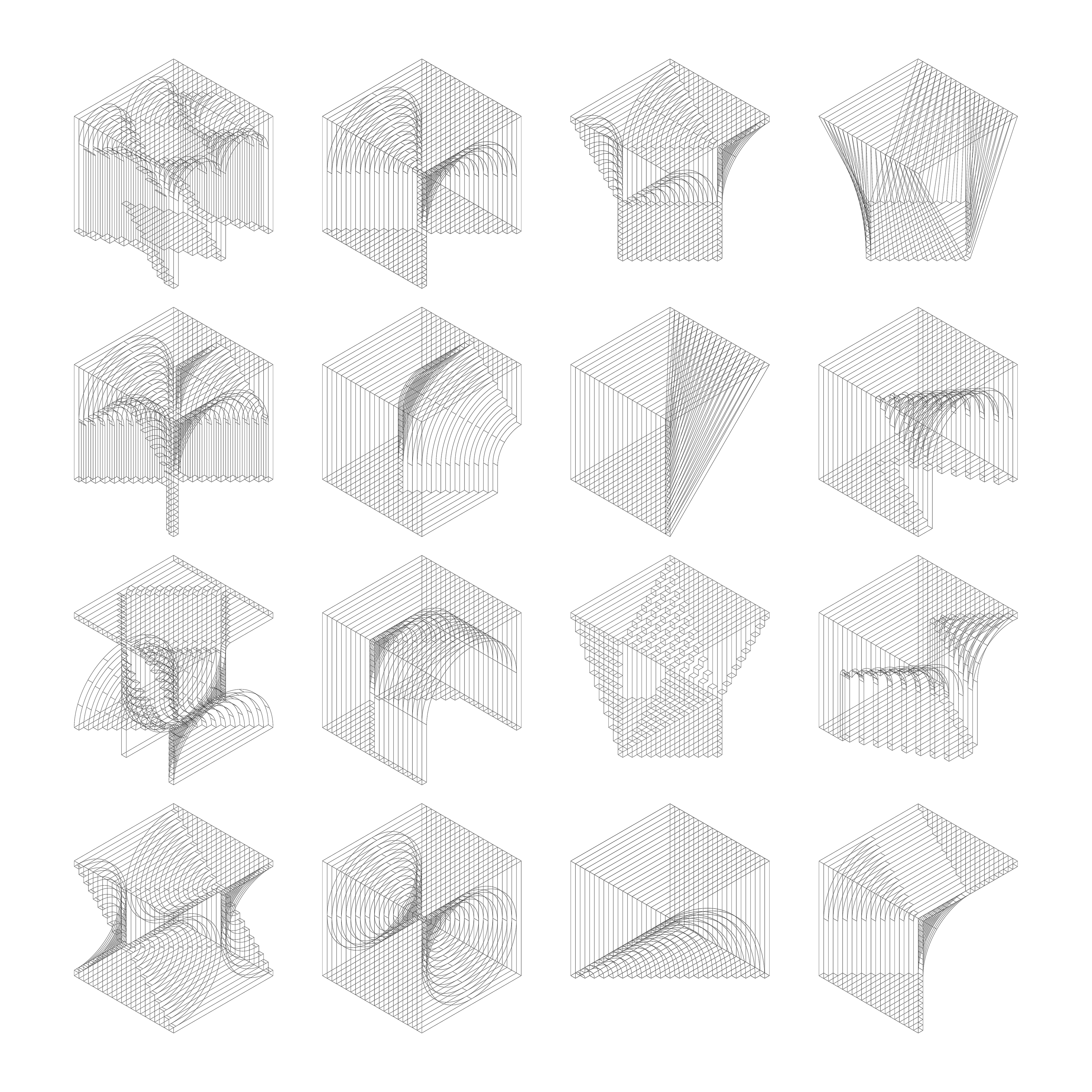
Line drawings from the Flowing Fragments collection
INFORMATION
Wallpaper* Newsletter
Receive our daily digest of inspiration, escapism and design stories from around the world direct to your inbox.
Rosa Bertoli was born in Udine, Italy, and now lives in London. Since 2014, she has been the Design Editor of Wallpaper*, where she oversees design content for the print and online editions, as well as special editorial projects. Through her role at Wallpaper*, she has written extensively about all areas of design. Rosa has been speaker and moderator for various design talks and conferences including London Craft Week, Maison & Objet, The Italian Cultural Institute (London), Clippings, Zaha Hadid Design, Kartell and Frieze Art Fair. Rosa has been on judging panels for the Chart Architecture Award, the Dutch Design Awards and the DesignGuild Marks. She has written for numerous English and Italian language publications, and worked as a content and communication consultant for fashion and design brands.
-
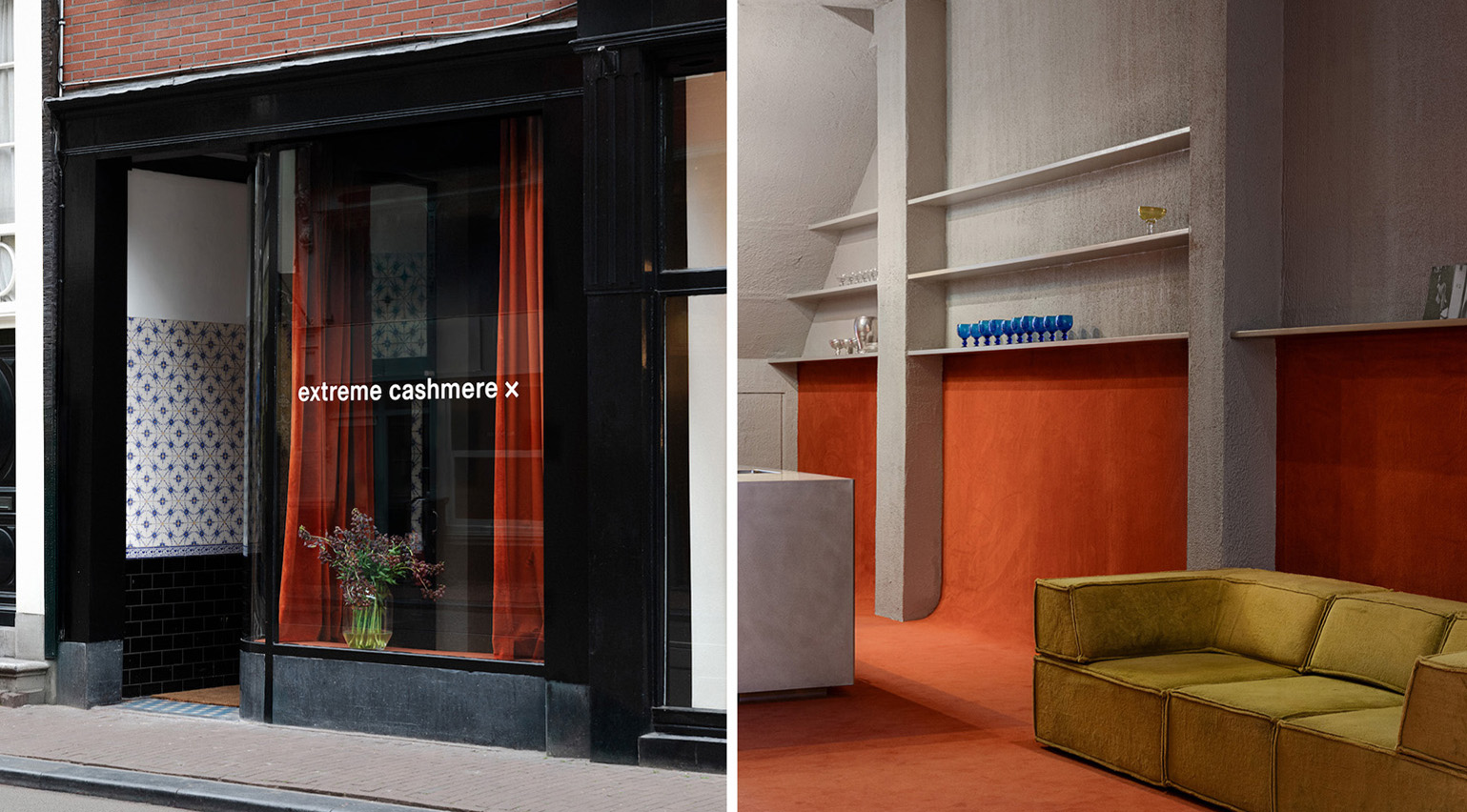 Extreme Cashmere reimagines retail with its new Amsterdam store: ‘You want to take your shoes off and stay’
Extreme Cashmere reimagines retail with its new Amsterdam store: ‘You want to take your shoes off and stay’Wallpaper* takes a tour of Extreme Cashmere’s new Amsterdam store, a space which reflects the label’s famed hospitality and unconventional approach to knitwear
By Jack Moss
-
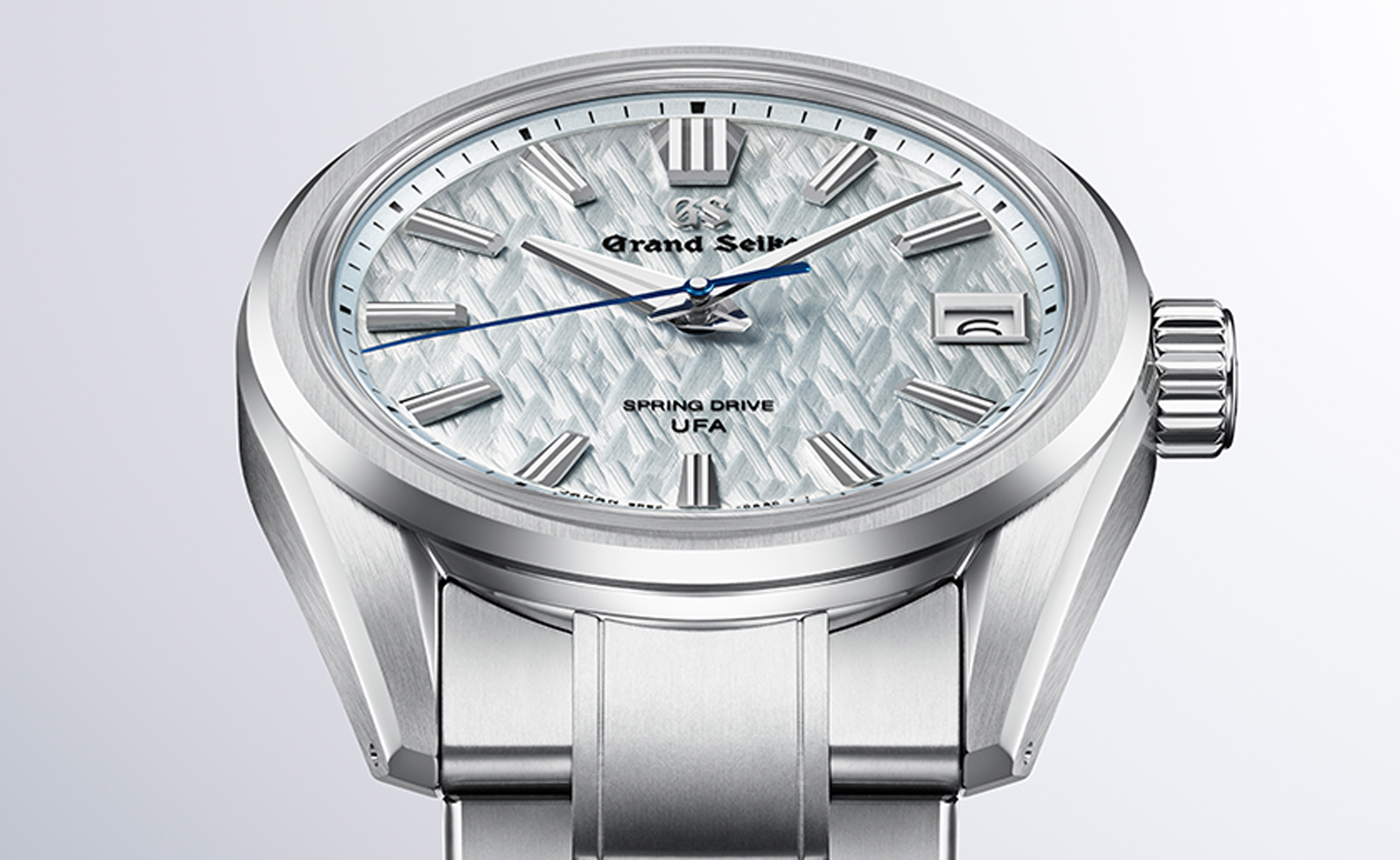 Titanium watches are strong, light and enduring: here are some of the best
Titanium watches are strong, light and enduring: here are some of the bestBrands including Bremont, Christopher Ward and Grand Seiko are exploring the possibilities of titanium watches
By Chris Hall
-
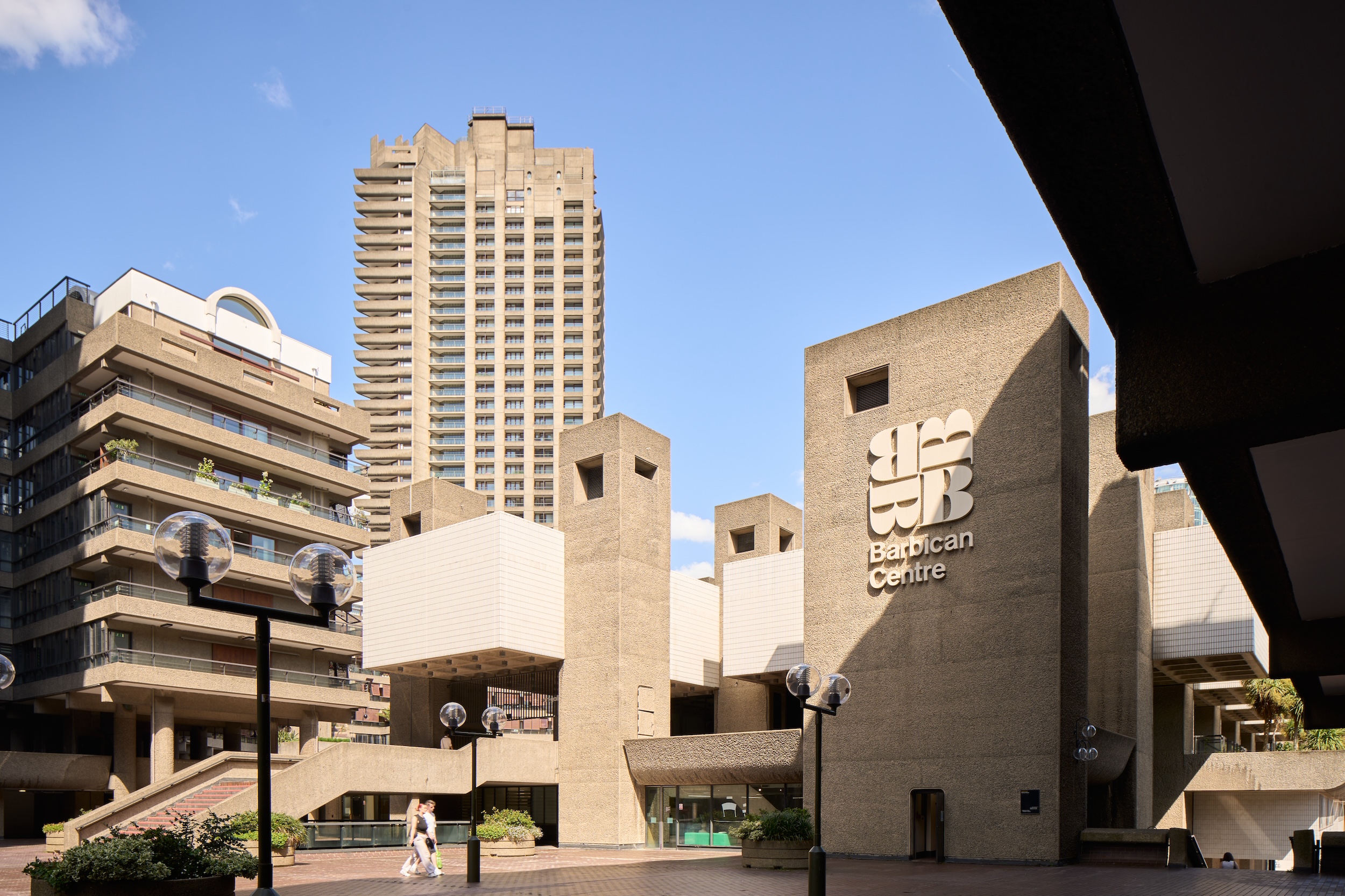 Warp Records announces its first event in over a decade at the Barbican
Warp Records announces its first event in over a decade at the Barbican‘A Warp Happening,' landing 14 June, is guaranteed to be an epic day out
By Tianna Williams